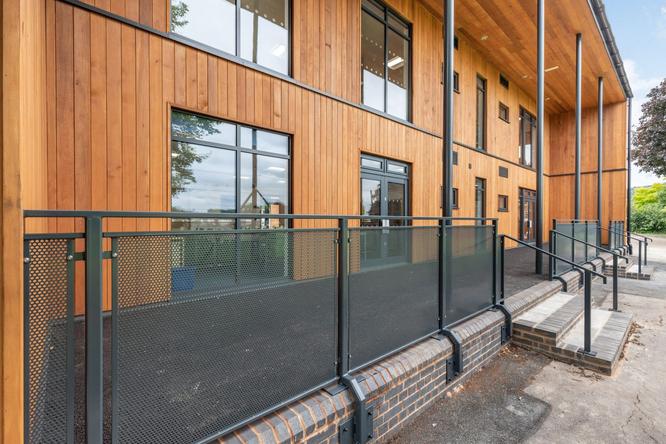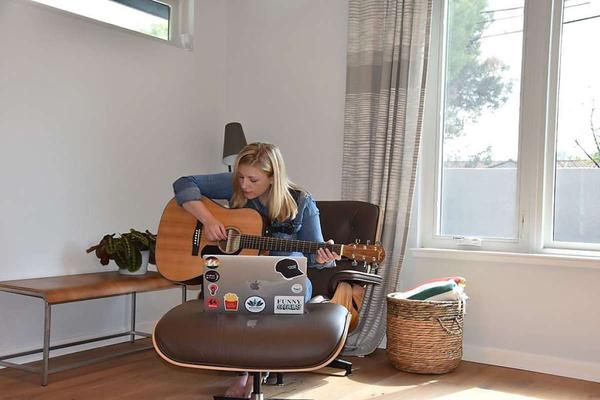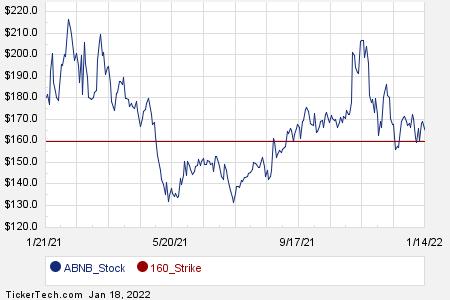Can volumetric manufactured buildings deliver a net zero future?
Is the road to a net zero future a well mapped out route or is there uncertainty along the way? Richard Hipkiss, development director of the Modular & Portable Building Association (MPBA), makes a case for volumetric manufactured buildings in shaping a more sustainable future
Since the government amended the Climate Change Act in 2019 to commit the UK to achieving net zero carbon emissions by 2050, the construction industry has been confronted with the need to decarbonise. But in today’s rapidly changing world, it can be difficult to keep up with the complex lexicon of carbon terminology and the evolving vocabulary surrounding sustainability.
According to the World Green Building Council, construction and buildings in use are responsible for 39% of all carbon emissions in the world. This is broken down into two elements with 11% being linked to the manufacture of materials and construction processes known as embodied carbon emissions and 28% associated with operational emissions caused by heating, cooling and lighting systems when a building is in use.
The challenge is therefore two-fold. While there has been a drive to reduce operational emissions through the implementation of government legislation such as the changes to Part L of Building Regulations to improve the building fabric and the wider use of innovative technologies – little has been done to address the carbon inefficiencies in the construction process.
As an industry association, it is our mission to demonstrate how the route to 2050 could follow a number of different paths. We intend to achieve this by extolling the virtues of volumetric manufactured buildings, as well as removing the complexity surrounding so-called modern methods of construction by diluting the myths and embracing reality.
Energy efficient
Advertisement
It is now established that volumetric modular approaches are a game-changer for the construction industry – reducing build times by an impressive 50-60% while increasing quality, productivity and safety. But what is not so widely understood is that compared to traditionally built projects it is easier to control energy use in factory settings than in an open construction site.
On average, 67% less energy is required to produce a volumetric manufactured building and up to 50% less time is spent onsite, resulting in up to 90% fewer vehicle movements, which is less disruptive for the local community and reduces carbon emissions.
Volumetric modular buildings are less susceptible to poorly specified manufacturers’ products as time can be taken upfront to validate the correct specification of materials. Designs are digitally constructed and virtually tested before they move on to the manufacturing phase. This process eliminates waste and achieves highly accurate and airtight building envelopes designed and built to higher sustainability requirements such as BREEAM standards. This allows clients to have confidence in the quality and performance that they can expect from their new building.
Unlike factory manufactured buildings, there is significant evidence that traditional construction methods do not produce buildings that perform as well as design expectations and there is a void between anticipated and actual in-use performance. Findings from studies such as PROBE (Post-Occupancy Review of Buildings and their Engineering) reveal that actual energy consumption in buildings is often as much as twice of that predicted in the design.

Not only is the actual construction of the building “greener” but volumetric manufactured buildings are also more energy efficient – reducing primary energy requirements and in-use operational emissions during the lifetime of the building.
Reducing landfill
But enhanced quality, speed and productivity are not the only benefits. In an industry where, according to Transparency Market Research, annual construction waste is expected to reach 2.2bn tonnes globally by 2025 – reducing landfill waste has to be a priority and volumetric modular construction provides a solution.
Individual modules are produced in factory settings, which allows better control over material use optimisation. The surplus products are recycled or reused for future projects, reducing the construction waste that ends up in landfill. Materials are protected from moisture and extreme weather conditions, reducing the risk of disposal through water ingress and damage.
DfMA & BIM
At the core of the manufacturing of volumetric modular buildings is Design for Manufacture and Assembly (DfMA) protocols and Building Information Modelling (BIM) technology, which empowers the optimal configuration of volumetric modular solutions by digitally connecting multidiscipline teams from the beginning of the concept design right through to the development process and beyond.
DfMA means buildings are conceived for manufacture within a factory environment and assembled onsite. BIM facilitates early design detail and three-dimensional design information, minimising the risk of errors by eliminating the time-consuming process of translating engineers’ information into material requirements and assembly drawings.
The benefits of volumetric manufactured buildings begin in the factory, continue on to the construction site and last through the lifetime of the building. The volumetric modular way limits the amount of concrete in the ground and eco-friendly materials are often specified and each individual component can be selected specifically for its performance characteristics, tailoring every inch of a volumetric modular build.
As the construction sector develops and adapts to meet changing government strategies, I firmly believe the upward trajectory of volumetric modular buildings will continue and we need to act now to help mitigate the impact of climate change for future generations to come.
Richard Hipkiss
Development director
Modular & Portable Building Association
Tel: +44 (0)2475 90 1938
www.mpba.biz
Twitter: @MPBAUK
LinkedIn: The Modular & Portable Building Association









